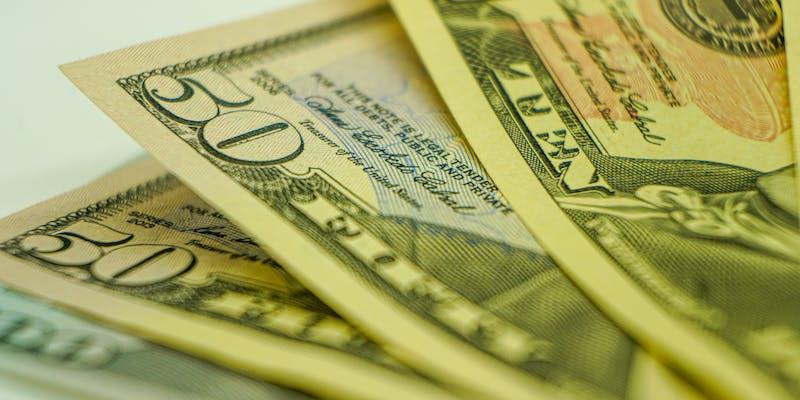When faced with financial difficulties, the focus moves to meeting the most basic needs. Your credit health should be given immediate attention if it has fallen in the rankings. Ignoring your credit at this time might hurt your finances in the long run.
Negative information may remain on your credit report for a maximum of ten years, making it impossible to remove from your score and preventing you from reaching your immediate and distant financial objectives. A person's credit score may affect their housing situation, employment prospects, and the costs of various goods and services (such as insurance and mobile phone contracts). Therefore, it is equally important to protect your credit score and do other asset protection. So, how do you protect your finances and credit in rough times? Here are some ways.
Financial Savings

Your budget may show your present and prospective expenditures. An asset legal budget helps you track your spending and manage your money. Prioritize the fundamental requirements of existence. You may use this to pay for necessities. Keep an eye out for potential spending areas next. Your money is now being spent in a way that you can comprehend. Put some of your income into savings and a rainy-day reserve.
Spend just what is necessary and put the rest into savings as your asset protection. Assess your life goals and save for an emergency fund. When you need to pay utilities, medical bills, or other urgent obligations, savings and emergency money assist.
Extra income
It is wise to put aside money from sources other than your normal employment during financial hardship to cover necessities and asset legal. This includes tuition, freelancing, part-time work, rental income, and so on. Even while it won't be a windfall, the money will help ease some of your financial strain. You will undoubtedly benefit when times go tough if you have several sources of income.
Maintain Your Credit Score
It should be noted that those without savings practices or an emergency fund are more likely to use credit cards excessively when faced with financial hardship. On-time payments are the most crucial aspect of a credit card. Your use of the credit card limit is very important.
Charge no more than 30% of your credit. Charge more than 30% of your available credit and your credit score may suffer. Late or missing credit card payments may also affect your score. No one will lend you money if your credit is bad. Additional credit and loan applications with a high credit score are available to you. Unless you're buying a home or car, don't apply for new credit.
Pay Your Bills On Priority
If you cannot pay all your bills at once, choose which ones to pay first. First, pay for food, energy, housing, work transportation, mobile phone bills, child care, and other basics. Everything else may wait till after your main payments are paid. However, remember that your credit and goodwill might take a hit if you miss a few payments. You may get back on your feet and make amends when your financial woes have passed.
Keep Alternative Job Options
The most effective strategy to generate new employment prospects is to network. Look for work and keep your CV up to date. Some occupations are more precarious than others. A large, irretrievable loss that would put you in a debt trap is a long-term loss of employment.
Try to find another employment, go into business for yourself, perform freelance work, or make a living doing what you love. You won't want to return to your old ways of doing things once you start making money, even if these options seem completely different. While employed, make a strategy and have your backup plans available. If you are laid off from your current position, you should have a backup plan.
Collaborate with Creditors to Find Another Method to Pay

Make an accommodation request in light of your present financial condition if you cannot pay your creditors or lenders the minimal amount due. To temporarily halt or make partial payments without harming your credit, you can be eligible for a financial hardship or relief program.
The two biggest items in most people's budgets are mortgages and school debt. Borrowers struggling financially due to the pandemic are finding help from several lenders. If you inquire, other creditors may also be able to provide choices that temporarily lower the monthly payment. To learn more, get in touch with your creditors and get your revised payment terms documented.
Check Your Credit Reports
If you check your report weekly, you may see developments that you didn't anticipate. Making sure that the payment plans you worked out with your creditors aren't showing up as past due or overdue on your credit report requires frequent reviews. You may use it to keep an eye out for any unusual behavior. Detecting instances of identity theft at an early stage might assist in halting their progression; however, this crime tends to spike during times of crisis. Follow the dispute processes given by your asset protection attorney each credit reporting agency posted on its website to submit erroneous information.
Keep A Consumer Statement
For each credit report with a negative note for late payments, you may want to consider adding a Consumer Statement. This statement, which should not exceed 100 words, explains any late or skipped payments. A remark like this won't affect your credit score, but it may help explain any unfavorable entries—like a layoff due to a pandemic—to prospective lenders. It may be relevant when you apply for a loan, credit card, or mortgage.
Record All Conversations
Keep a record of any correspondence you may have with credit reporting agencies, lenders, or creditors. Your notes from any interactions with corporate personnel, asset protection attorney, and any documents you provide or receive go under this category. Put your important documents in a secure location, such as a cloud storage or a secured file cabinet.
You may improve your financial situation for the next economic rebound by setting aside time to protect your credit.




